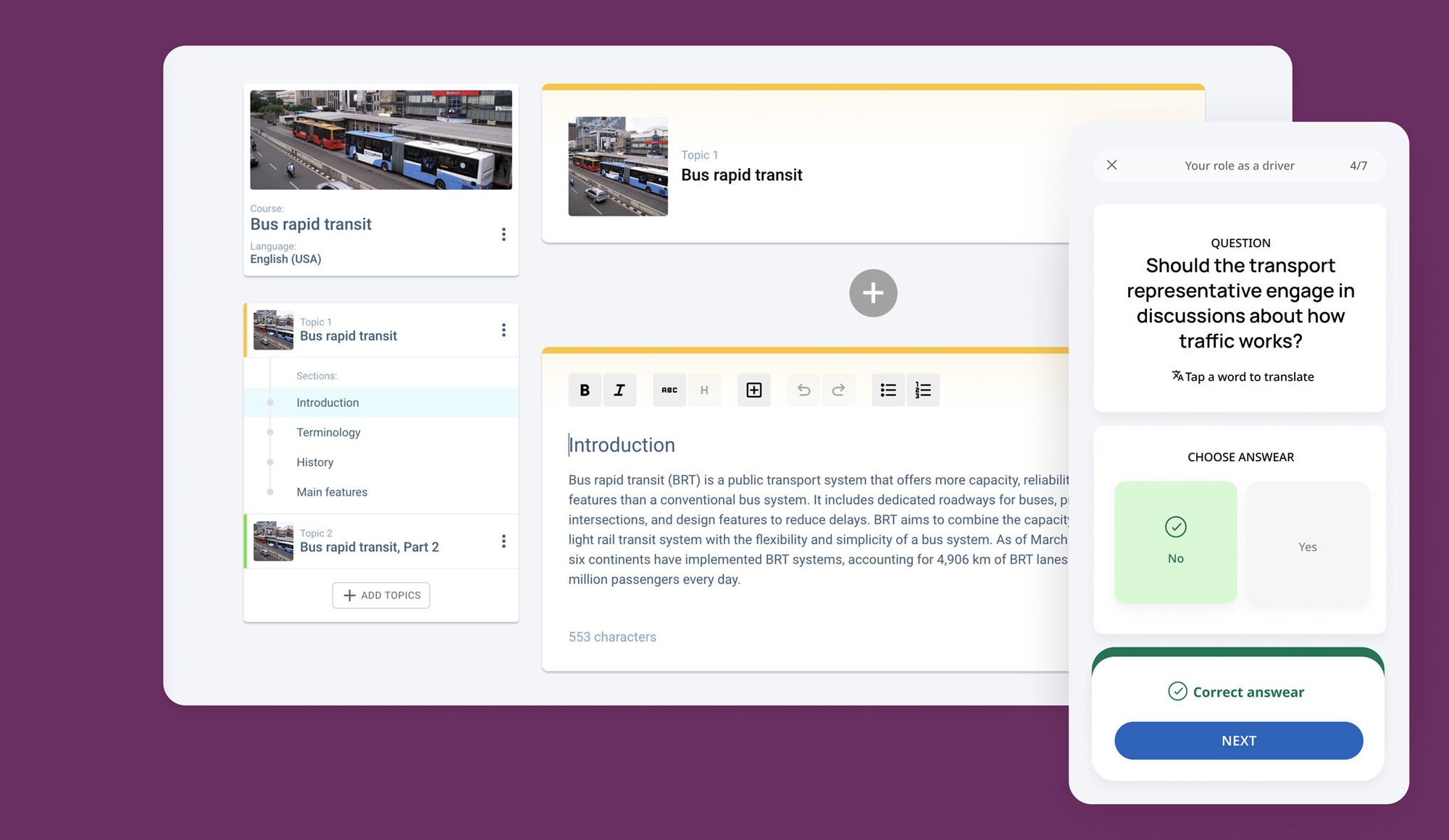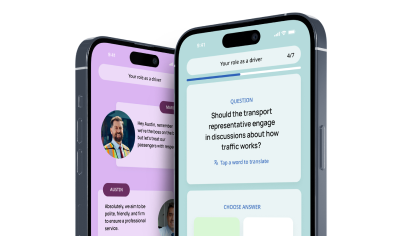Frontline leaders are crucial in driving productivity and fostering a positive work environment. Investing in frontline leadership training can make these individuals effective leaders who inspire their teams and drive results. In this article, we will explore seven essential tips for developing effective frontline leaders and provide a step-by-step guide to creating a comprehensive frontline leadership training program.
Tip 1. Trust your team with responsibilities
Developing influential leaders starts with trust. Trusting your team members with responsibilities demonstrates that you have confidence in their abilities and fosters a sense of empowerment. By delegating tasks and projects to your frontline supervisors, you allow them to grow and develop their practical skills.
Additionally, providing constructive feedback will enable your frontline managers to learn from their experiences and continue to improve. Trust is a two-way street, so encourage open communication and empower your team leaders to share their thoughts and ideas.
Trusting your team with responsibilities is not just about offloading tasks; it's about building a culture of accountability and ownership within your organisation. When team members feel trusted and empowered, they are more likely to take ownership of their work and strive for excellence. This sense of ownership can lead to increased motivation and productivity as individuals feel a personal stake in the success of their projects.
Moreover, delegating responsibilities can also be a strategic move to identify emerging team leaders within your company. By allowing individuals to take on new challenges and showcase their capabilities, you can pinpoint those with the potential to step into more senior roles. This proactive approach to talent development benefits the individual and strengthens your organisation's overall leadership pipeline.
Tip 2. Communicate with clarity and purpose
Clear and effective communication is vital for frontline leaders. They bridge upper management and the frontline team members, relaying information, goals, and expectations. To develop influential leaders, provide training on communication skills, including active listening, assertiveness, and clarity in delivering messages.
Encourage your frontline supervisors to ask questions, seek clarification, and provide feedback, creating an environment where open and transparent communication thrives. By instilling strong communication skills in your leaders, you can ensure that vital information is effectively disseminated throughout your organisation.
Furthermore, frontline managers need to understand the importance of non-verbal communication in their interactions. Body language, facial expressions, and gestures significantly convey messages and build rapport with team members. Training sessions focusing on interpreting and utilising non-verbal cues can enhance a leader's ability to connect with their team on a deeper level.
In addition to verbal and non-verbal communication skills, frontline managers should be well-versed in written communication. Clear and concise emails, reports, and memos are crucial for transmitting information accurately and efficiently within an organisation. Effective written communication can help leaders convey their messages with precision and professionalism, contributing to a culture of clarity and purpose in the workplace.
Tip 3. Demonstrate the behaviours you want to see
Leading by example is a powerful way to develop effective frontline leaders. Your actions and behaviours shape the culture of your team and serve as a model for others to follow. Demonstrating the qualities and values you want your frontline leaders to possess is essential.
Show empathy, fairness, and integrity in your interactions with team members. Be accountable for your actions and decisions. Remember, your frontline managers are observing and learning from you, so be mindful of the behaviours you exhibit.
Furthermore, embodying the behaviours you wish to see in your team can create a ripple effect throughout the organisation. When leaders consistently display positive traits such as transparency and respect, it sets a standard for others to emulate. This can lead to a more cohesive and harmonious work environment where mutual respect and understanding prevail.
Additionally, showcasing vulnerability and humility as a leader can foster a culture of openness and trust within your team. By admitting mistakes and showing a willingness to learn and grow, you encourage your frontline managers to do the same. This creates a safe space for innovation and creativity, as team members feel supported and valued in their professional development.
Tip 4. Encourage frontline leaders for the ongoing learning
Continuous learning and development are at the core of leadership growth. Encourage your frontline managers to seek learning opportunities through workshops, seminars, or try the continuous improvement course. Supporting their professional development shows that you are invested in their success.
Provide access to relevant resources, such as industry articles, books, or podcasts, to create a culture of learning within your organisation. Implement regular training sessions or lunch-and-learn sessions where leaders can share their knowledge and experiences with each other. By fostering a learning mindset, you can develop adaptable leaders who continuously strive for improvement.
Furthermore, it is essential to recognise that ongoing learning and development benefit individual leaders and contribute to the organisation's overall success. As leaders acquire new skills and knowledge, they are better equipped to navigate challenges, drive innovation, and inspire their teams to achieve strategic goals.
In addition to formal learning opportunities, consider introducing mentorship programmes where experienced leaders can guide and support emerging leaders. This mentorship dynamic fosters a culture of knowledge sharing and creates a sense of community within the leadership team. By encouraging ongoing learning and development through various channels, you are investing in your organisation's long-term growth and sustainability.
Tip 5. Recognise and celebrate achievements
Recognition is a powerful motivator and an essential aspect of frontline leadership development. Celebrate the accomplishments of your frontline leaders and their teams to boost morale and inspire continued success.
Personalise your recognition efforts by acknowledging individual achievements in team meetings or through personalised notes. Consider implementing an employee recognition program that rewards exceptional performance and encourages a culture of appreciation.
Recognising and celebrating achievements boosts morale and fosters a sense of belonging and loyalty among team members. When individuals feel valued and appreciated for their hard work, they are more likely to remain engaged and motivated in their roles. This, in turn, leads to increased productivity and a positive work environment.
Furthermore, celebrating achievements can help create a culture of success within your organisation. By publicly acknowledging and rewarding outstanding performance, you set a standard of excellence for others to aspire to. This can drive healthy competition, encourage continuous improvement, and ultimately contribute to your team's overall growth and success.
Tip 6. Cultivate empathy and understanding
Influential leaders understand the importance of empathy and understanding in building solid relationships with their team members. Empathy allows leaders to connect on a deeper level, resonating with the challenges and emotions of their frontline supervisors.
Instil empathy in your frontline workers by encouraging them to listen, show compassion, and actively consider different perspectives. Lead discussions on diversity, equity, and inclusion, creating an inclusive environment where everyone feels valued and heard.
Empathy is a soft skill and a crucial trait that can transform organisational culture and drive performance. When leaders demonstrate empathy, they create a safe space for open communication and collaboration, fostering a sense of trust and loyalty among team members. This, in turn, can lead to increased employee engagement and productivity.
Understanding each team member's unique experiences and backgrounds is essential for effective leadership. By listening and empathising with their challenges, leaders can build stronger connections and motivate their employees to perform at their best. Encouraging a culture of empathy and understanding can also help resolve conflicts and improve overall team dynamics, creating a harmonious work environment where everyone feels supported and respected.
Tip 7. Encourage teamwork and collective problem-solving
Teamwork is a cornerstone of successful organisations. As a frontline leader, fostering collaboration and collective problem-solving is crucial to developing influential leaders.
Encourage your leaders to empower their team members to contribute ideas and solutions. Implement regular team-building activities to strengthen relationships and promote effective collaboration. By emphasising teamwork, you can develop leaders who understand the value of leveraging diverse perspectives and strengths to achieve common goals.
Furthermore, creating a culture of teamwork within an organisation can increase employee satisfaction and retention. When individuals feel supported and valued in a team environment, they are more likely to be engaged and motivated. This sense of belonging and camaraderie can also boost productivity and innovation, as team members feel comfortable sharing their ideas and working together towards shared objectives.
Recognising and celebrating successful teamwork and collective problem-solving examples within your organisation is also essential. By highlighting and rewarding instances where teams have excelled in working together to overcome challenges, you reinforce the importance of collaboration and inspire others to follow suit. This positive reinforcement can embed a culture of teamwork as a fundamental aspect of your leadership approach.




